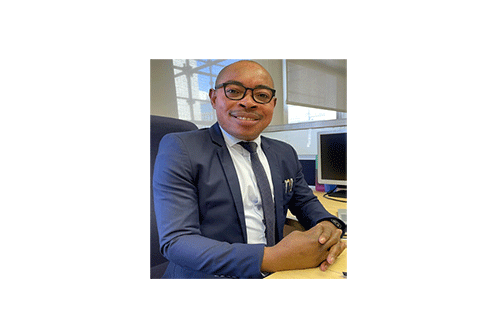In its report, the IMF trimmed its 2023 global GDP growth forecast to 2.7%, 0.2 points down from July expectations. Its world growth forecast for this year remains unchanged at 3.2%.
The world is facing record inflation due to a number of factors, including the Russia-Ukraine conflict, which has reduced food supplies, the effects of the pandemic on supply chains and global warming. According to the African Development Bank, the Namibia economy is projected to grow by 2.6% in 2021 and 3.3% in 2022, on the back of a steady recovery in financial services, tourism, retail and wholesale trade, and the mining industries combined with an improvement in the regional and global economic environment.
But the economy still faces substantial risks and challenges in the short to medium term. The public debt stock is expected to increase to N$138.4 billion, equivalent to 69.6% of GDP in FY2022/23. South Africa’s economy is projected to rebound to 3.0% in 2021, but the pace of the recovery will slow to 1.6% in 2022 due to continued structural constraints such as unreliable electricity supply and job regulations.
The inflation rate is projected at 4.2% in 2021 and is expected to stay within the reserve bank’s target range of 3% -6% for 2022.
The current account surplus is expected to erode, since a recovery in oil prices could raise the import bill. Public debt could reach more than 90% of GDP in the medium term, with projections that it will stabilize at 95% in 2026.
Therefore, Namibia’s next president must understand economics to steer economic recovery. To resuscitate the Namibian economy would require massive investment in infrastructure, skills & training; enacting and enforcing enabling-business incentives to stimulate production of goods and services for local consumption and exports and having a clear fiscal and monetary policy direction for the economy. I have started visualising a good Namibian leader.
That is, a person who travels across the country and has a friend virtually everywhere he travels to, and he knows at least one person that he can communicate with. Namibians are very resilient, they are very resourceful, so leaders should see how to use this to achieve a common objective. That is a person, who is very versed in economics and is also a good politician, who should be able to talk to Namibians and so on. The leaders should understand Namibia and Namibians. Anyone who wants to be a leader must use his intellect to understand the people.
For Namibia to survive economically, we need to remove the petrol subsidy, downsize government’s payroll and reform the tax. The next president must be prepared to tackle that issue. The decisions that need to be taken to reset the country are painful ones, and whoever wins the election will not have a honeymoon period before he faces the response from the electorate.
I expect the next president to hit the ground running and announce his/her cabinet and plans for revamping our economy and restructuring our politics. In choosing a cabinet, the president needs to focus more on merit and competence, rather than political rewards, even though heightened ethnic and regional tensions need to be eased and restructuring the country, both politically and economically, is the only way forward. Namibia’s next resident, who will take office in March, will have few options but to step up stimulus to revive an economy ravaged by Covid, Russia/Ukraine war and global warming. Namibia national security should be elevated to the highest-ever level amid rising geopolitical risks, how to strike a balance between development and security could be one of the most important questions for the next president.
Namibia is part of a global economy and is vulnerable to international fluctuations, but this does not mean the country does not have some agency to improve its domestic situation.
The long-term consequences in terms of equity, living standards, wellbeing and economic success are likely to be serious. Failure to deal with this incoherence has actively undermined any ambitions towards levelling up.
Yet, this failure, and the lack of urgency in trying to address it, has received absurdly little attention. There is a need to legislate and empower the ministries and relevant departments to take all routine decisions, as is the standard international practice. Against this background, jumpstarting the economy will have to be done from the top downwards.
It will need to be a continuous process, month after month, year after year. We will have to focus on the areas of unemployment, education, and inequality which will ultimately lead to a decrease in poverty.
The right decisions will have to be made and strict implementation thereof will be vital. We need to invest in our economy not in bailing out drowning SOEs as has become the norm. We need to increase business confidence not simply increase tax rates to fill the coffers. Short- and medium-term reforms and policies need to be put in place.
In conclusion, we want to hear the presidential hopefuls tell us how they plan to manage the debt we have accumulated and grow our GDP.
Do the candidates have strategies for fiscal consolidation? Will they be honest about their taxation plans? It will be tough times and it might still get a bit worse before it gets better. However, the playing field is level for all of us. In the end, our economy will be bright and green
again.


